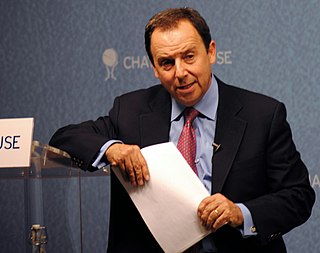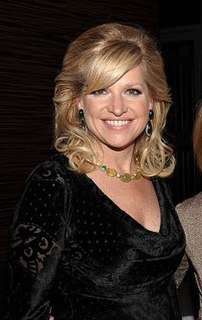A Quote by Ron Suskind
When you get people standing up saying, 'I'm going to just tell the truth; what do we have to fear?,' it encourages others, and it creates a counterresponse.
Related Quotes
Sometimes I don't tell the truth, which is telling the truth about not telling the truth. I think people don't tell the truth when they're afraid that something bad's going to happen if they tell the truth. I say things all the time that I could really get into trouble for, but they kind of blow over.
Five Truths
about
Fear Truth
1. The fear
will never
go away as
long as I continue
to grow. Truth 2. The only way to get rid of the fear of doing something is to go out and do it. Truth 3. The only way to feel better about myself is to go out… and do it. Truth 4. Not only am I going to experience fear whenever I’m on unfamiliar territory, but so is everyone else. Truth 5. Pushing through fear is less frightening than living with the underlying fear that comes from a feeling of helplessness.
It's important for me to say something, and with wisdom if I can. I don't think there's anything wrong with just going out there and having fun and goofing around. I want to experiment with that too. But yeah, I feel like I have a responsibility to produce something hopeful, and maybe inspirational to people. When people come up to be and tell me how my music has changed their lives, that only encourages me to take it more seriously. Sometimes I get annoyed with myself for getting too serious, but that's just what I need to do.
People standing up and saying, 'This isn't right,' is certainly a quality I admire in specific circumstances. There are people who do that and have a different set of politics, and then I don't necessarily agree with what they're doing and why they're doing it. But the act in and of itself of saying something is wrong and standing up for what they think is right is something I generally admire.
Fear is not a motivating factor. You might be able to get a little bit more out of someone in the short term, but you will completely erode your business and your culture in the long term. You're going to lose all your good people. You're not going to have people tell you the truth, and it becomes the tradition.
For me, I felt bad for people asking the questions, cause you know their boss sent them out saying, 'Get me something on Mission Impossible.' And you ask the question, and it's just a polite, 'I'm not going to tell you.' Then, every so often, they'd go, 'Well, can't you just tell us a little bit?' I have to say, 'You know what guys, I'm under contract and I'm not going to tell you anything.' So you keep asking the questions and I'm just going to keep smiling. And it's hard, cause I don't want to seem rude, but it's part of my job just like it's part of their job to keep a secret.
I was talking to a friend of mine who's a teacher in Iowa and, you know, she teaches kids - English is their second language, and they're scared that they're going to get sent home, their family's going to get broken up. Regardless of whether [Donald Trump] does it or not, whether it's true or not, the rhetoric creates a climate of fear and tension, and that's not good for the country.
I'm standing up for the right of self-determination. I'm standing up for our territory. I'm standing up for our people. I'm standing up for international law. I'm standing up for all those territories - those small territories and peoples the world over - who, if someone doesn't stand up and say to an invader 'enough, stop', would be at risk.

































